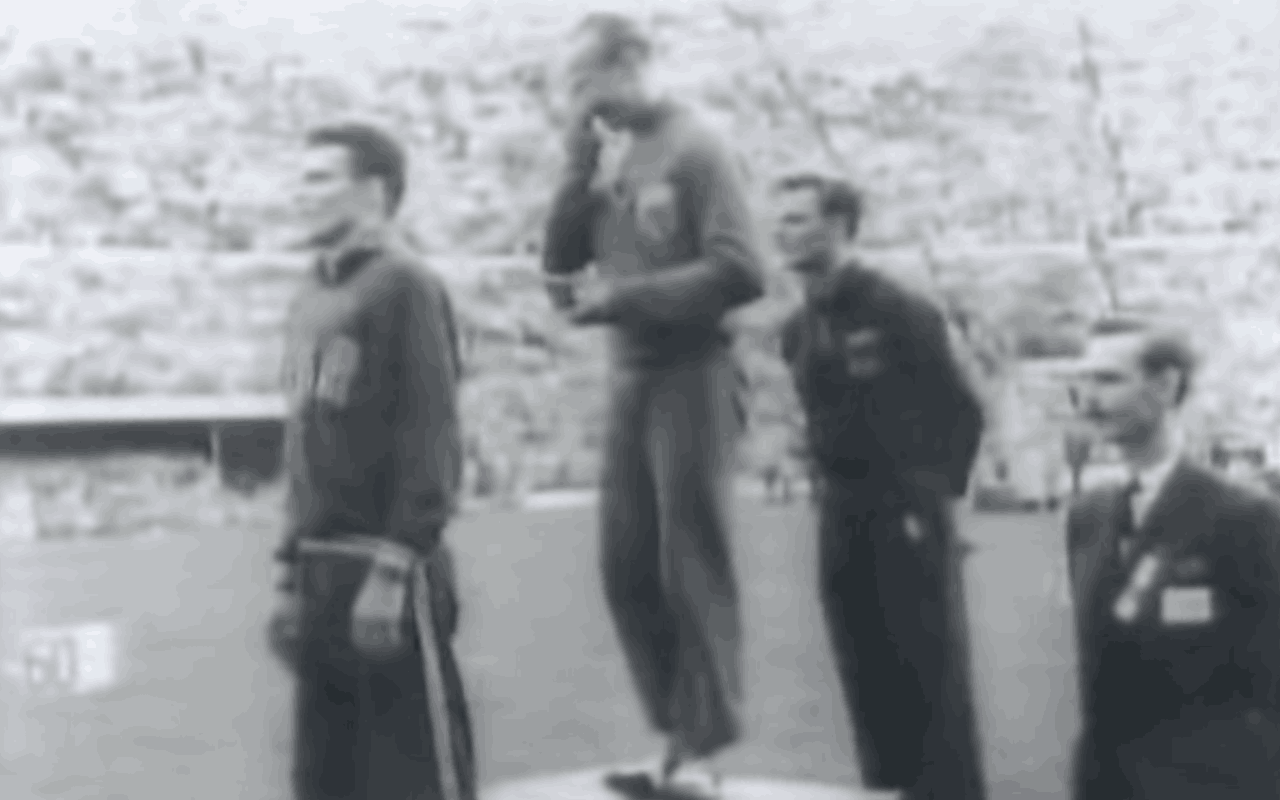Luxembourg has produced only a handful of true sporting heroes. There has been a clutch of Tour de France champions, of whom the 1958 winner Charly Gaul remains the outstanding name. But the one athlete whose legacy remains indelible () is Josy Barthel, who won gold for Luxembourg in the 1500 metres at the Helsinki Olympics on 26 July 1952.
He was “an idol for many young athletes of yesteryear and even today,” minister of sport (LSAP) tells Delano.
Originally from Mamer, Barthel made a name for himself as a runner while still serving in the Luxembourg army. He won successive gold medals in the 800 metres at the World Military Games of 1947 and 1948, and even did the double with victory in the 1500 meters at the latter tournament, held in Brussels. That same year Barthel, still only 21, was in London for the first summer Olympics after WWII. He made it through to the final, but only finished ninth.
But Barthel kept improving and earning a reputation as a winner. He was the Student World Games champion at 800 meters in 1949 and again in 1951, when he repeated his double from the Brussels military games by also winning the 1500 metres.
Nevertheless, at the 1952 Olympics in Helsinki, Barthel was not among the favourites. Germany’s Werner Lueg had recently become the joint world record holder and was considered a shoo-in for the gold medal. Also competing were Britain’s upcoming star Roger Bannister (who would run the first sub-four-minute mile two years later) and the US champion Bob McMillen.
Dramatic race
These four athletes produced a wonderful and dramatic 1500 metre final in Helsinki. Lueg led the race most of the way but entering the final lap Barthel was on his shoulder. As the leaders entered the final straight, Barthel--renowned for his sprint finish--made his move and the tiring Lueg could not respond. Indeed, Barthel’s biggest threat at that stage came from the equally fast finishing McMillen.
But the Luxembourger just managed to hold off the American to cross the line first in a new Olympic record of 3'45"20. Lueg was third ahead of Roger Bannister, who both also beat the old Olympic record. Barthel received his medal from the then Crown Prince Jean.
It is great to be able to step into the footsteps of such a great athlete and Luxembourg hero
Luxembourg’s current middle-distance running champion, Charles Grethen, says that even though he never got to meet Barthel, the gold medal winner remained an inspiration. “Josy Barthel and I share a similar journey,” Grethen told Delano. “We both went through the US University system where we combined school and sports and later returned to Luxembourg and competed over both the 800 and 1500m.”
Grethen, who competed for Luxembourg at the Olympics in 2021, says that thoughts of Barthel’s victory in 1952 were refreshed when he made the 1500 metres final in Tokyo. “It is great to be able to step into the footsteps of such a great athlete and Luxembourg hero,” Grethen says today.
Following Helsinki, Barthel went on to become one of the best mile runners in the world, winning six races in the 1953-54 season in the United States, where he had gone to study at Harvard after being offered a scholarship. But at the Melbourne Olympics in 1956 Barthel failed to defend his title--he placed tenth in qualifying and didn’t make the final--and he all but retired from competitive running.
His will, diligence, character, perseverance, perfectionism, linked to a great talent and zeal…allowed [Barthel] to excel in sports competitions and well beyond
Georges Engel says that Barthel will be remembered for his “will, his diligence, his character, his perseverance, his perfectionism, linked to a great talent and zeal, attributes and traits that allowed him to excel in sports competitions and well beyond in his multiple functions, especially politiPolitical careercal, after his sports career.”
As Engel says, Barthel’s legacy went well beyond competing on the track. In 1962 he became the president of the Luxembourg Athletics Federation, and served for 10 years. In 1973 to 1977 he was the president of the Luxembourg Olympic Committee.
Political career
Barthel entered politics and became a member of the Democratic Party. In 1977 he was made a member of the coalition government led by DP prime minister Gaston Thorn, when he served as minister for transport, energy and the environment as well as tourism until July 1979. He also served as a member of parliament and was on the Luxembourg City council.
Barthel, who had married in October 1952 just months after his Olympic triumph and had two daughters, died in July 1992 at the age of 65 following an illness.
A year later the national football and athletics stadium on the route d’Arlon was renamed the Stade Josy Barthel in his honour. The ageing stadium, first built in the early 1930s, was replaced by a new national football and rugby stadium in Kockelscheuer and at the moment there is no official national athletics stadium. A high school in his hometown of Mamer is also named after Barthel.


